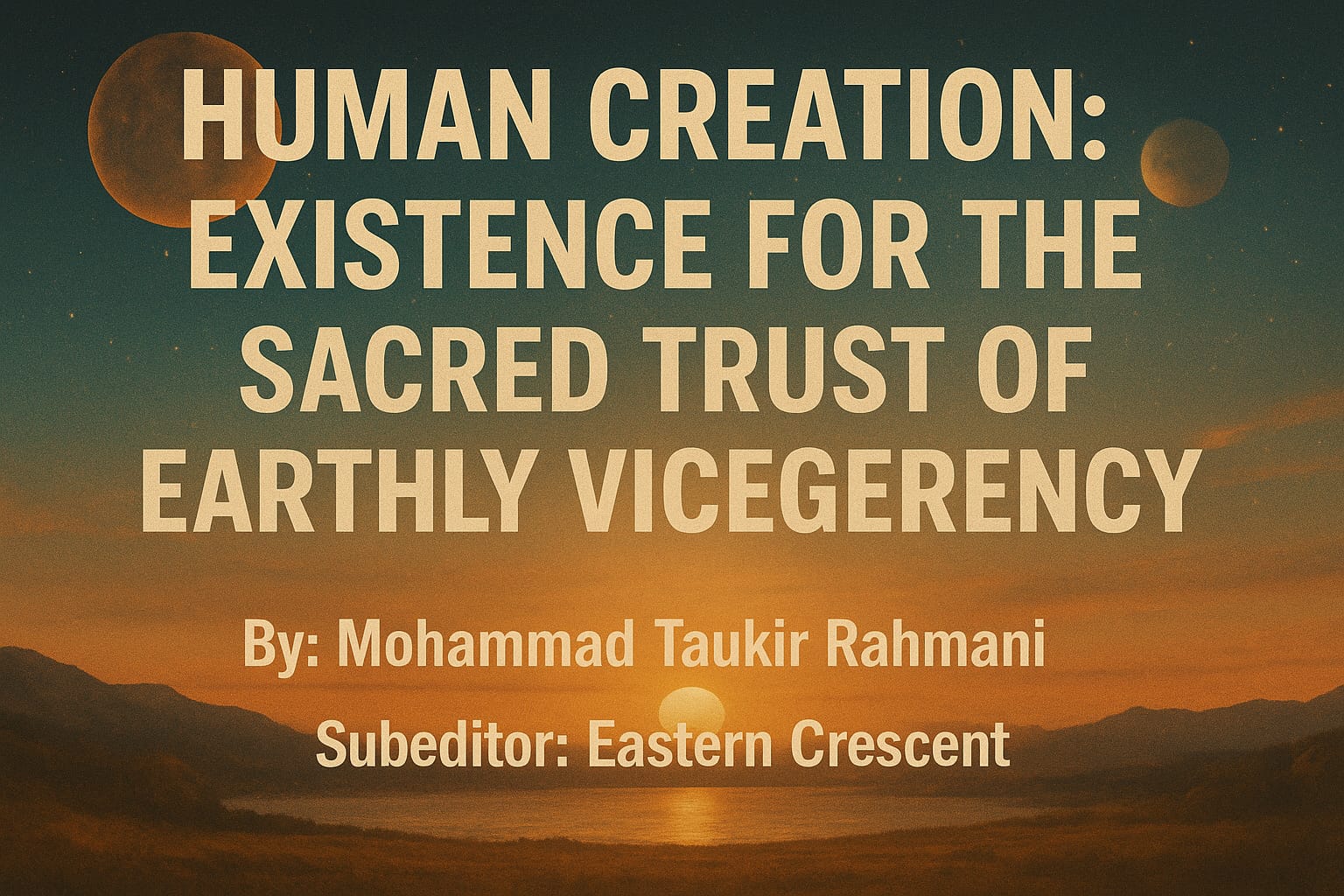
Human Creation: Existence for the Sacred Trust of Earthly Vicegerency
Human Creation: Existence for the Sacred Trust of Earthly Vicegerency
By: Mohammad Taukir Rahmani
Subeditor: Eastern Crescent
Imagine a great championship match where players are chosen after rigorous trials. Now suppose, instead of trained athletes, someone randomly drags a passerby from the street and throws him into the field without preparation or practice. Would such a decision be called wisdom—or folly? Undoubtedly, it would be deemed absurd. Great responsibilities demand deliberate preparation, and careless selection is proof of blindness, not insight.
This simple parable points toward a deeper reality: whenever the purpose is great, preparation is indispensable.
Humanity’s creation was no accident. God did not cast humankind into the world without design. The first man, Adam, was not instantly dispatched to earth; he was first placed in Paradise. Why? The answer lies in the philosophy of creation and the wisdom of trial.
The Manifesto of Vicegerency
The Qur’an declares:
“I am placing upon the earth a vicegerent.” (Al-Baqarah 2:30)
This was not the proclamation of mere existence; it was the announcement of responsibility. Humanity was not created simply to exist, but to bear the weight of stewardship over the earth. Yet entrusting such a mission without orientation would be like sending a soldier into battle without training. Adam’s initial placement in Paradise was part of this orientation—an eternal reminder that humanity’s true home is not this transient world, but the eternal garden.
The First Trial and the Anatomy of Human Weakness
In Paradise, everything was permitted except one tree. That prohibition was humanity’s first test—the test of obedience. Adam faltered. He forgot. He succumbed to temptation. Yet in this failure lay the revelation of a profound truth: human beings stumble, but they also rise; they err, but they can repent.

When Adam realized his mistake, he turned instantly to God with the supplication: “Our Lord, we have wronged ourselves. If You do not forgive us and have mercy upon us, we will surely be among the losers.” (Al-A‘raf 7:23)
Here lies humanity’s first lesson: success is not in sinlessness, but in repentance, resilience, and renewed fidelity after error.
Awakening to the True Homeland
Had Adam been sent straight to earth, humanity might never have realized that its true homeland is Paradise, and that earthly life is only a proving ground. The brief sojourn in Paradise engraved into the human soul a restless memory: we belong elsewhere. Every longing for beauty, every dissatisfaction with mortality, is in truth a whisper of that lost abode.
Adam’s Honor and the Cosmic Announcement
The narrative of Adam’s creation contains another decisive event. God commanded the angels to bow in respect before Adam, and bestowed upon him the knowledge of names. This was a cosmic declaration: humanity is not mere clay, but a creature of knowledge, will, and choice—a being whose potential can surpass even the angels.
Prophethood: The Curriculum of Human Education
Adam’s story is also the opening chapter of the philosophy of prophethood. Reason can discover God, but cannot construct a complete way of life. Desire misleads, and Satan deceives. Humanity, therefore, requires guidance from beyond itself—a guidance that awakens the conscience when it slumbers, corrects the will when it falters, and illuminates the path when darkness surrounds. This is the function of prophecy.
Without revelation, humanity would remain lost in cycles of error. With revelation, its frailty is not a curse but an opportunity for growth. Prophethood is not an abstract theory; it is “practical education”—a living example demonstrating how to obey, how to fall, how to repent, and how to rise again.
The Culmination: The Prophetic Model of Muhammad ﷺ
Throughout history, thousands of prophets were sent, each a lamp dispelling the night of ignorance. Yet time eroded many of those lamps. Some prophets’ names are preserved without detail, others’ teachings were lost, and some scriptures were altered beyond recognition. We honor them in faith, but their lives no longer stand as complete models of imitation.
Reason itself dictates: true following requires a guide whose life is transparent, whose teachings are intact, and whose authenticity is beyond doubt. Otherwise, “following” degenerates into blind imitation.

History bears witness to one such guide—Muhammad ﷺ, the Seal of the Prophets. His life is not hidden in shadows but preserved in daylight clarity. Every stage of his existence, from childhood innocence to youthful integrity, from mercantile honesty to political leadership, from intimate family life to public governance, stands recorded in living detail. Friends adored him, enemies acknowledged his truthfulness, and even those who rejected his message were forced to admit his title: al-Sadiq, al-Amin—the Truthful, the Trustworthy.
Where else in history do we find a leader whose private household details were transmitted for the instruction of posterity? Whose interactions with spouses, children, neighbors, and strangers became an open textbook for his community? No such precedent exists. This is a singular honor of Muhammad ﷺ.
The Logic of Following Him
If one seeks purity of childhood, Muhammad’s life is the example. If one seeks integrity in youth, his youth is the model. If one seeks honesty in trade, his business dealings are the paradigm. If one seeks principles of governance, the Constitution of Medina is the blueprint. If one seeks spiritual devotion, his worship is the standard. If one seeks the balance of family and society, his household practices are the guide.
In every human domain—morality, politics, economics, worship, and private life—Muhammad’s example is a lighthouse. The Qur’an itself testifies:
“Indeed, in the Messenger of God you have a beautiful example.” (Al-Ahzab 33:21)
Humanity was not created merely to exist, but to shoulder the trust of earthly vicegerency. The story of Adam revealed the nature of this mission: weakness and temptation are real, but so are repentance and divine guidance. Prophethood became the necessary curriculum of human education, and Muhammad ﷺ stands as its final and complete exemplar.
His life is not only an object of faith but a demand of reason. To follow him is not blind devotion; it is enlightened wisdom. Without him, humanity gropes in darkness. With him, it walks the straight path back to its original homeland—Paradise.
You May Also Like
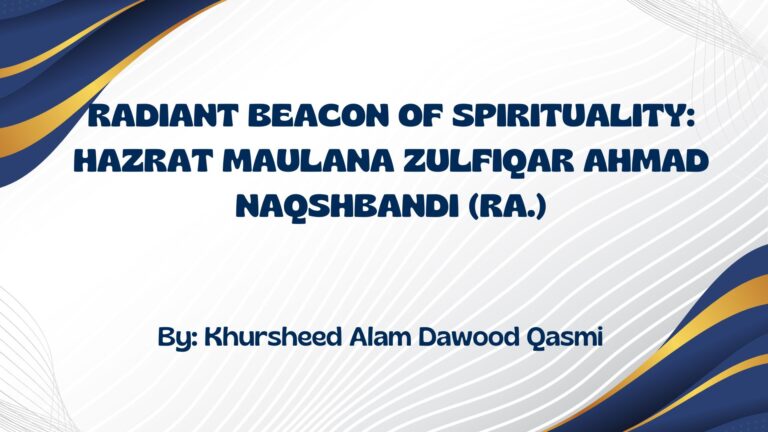 Articles
ArticlesRadiant Beacon of Spirituality: Hazrat Maulana Zulfiqar Ahmad Naqshbandi (Rah.)
By: Khursheed Alam Dawood Qasmi First Acquaintance with Peer Sahib: It was around the...
 Culture
CultureThe Flood of Heresy: A Manifestation of Ideological Colonialism and a Trial for Islamic Consciousness
The Flood of Heresy: A Manifestation of Ideological Colonialism and a Trial for Islamic...
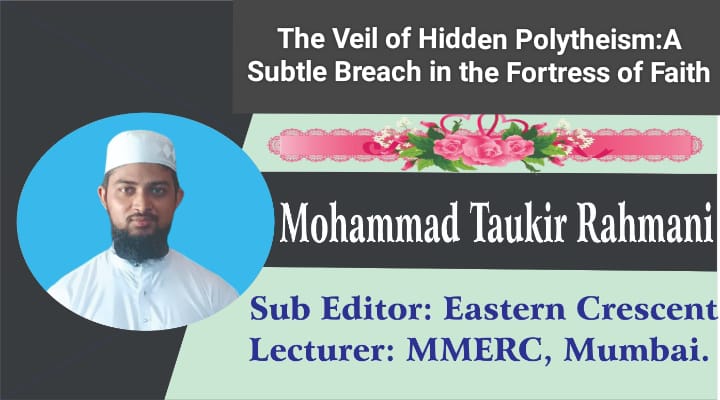 Islam
IslamThe Veil of Hidden Polytheism: A Subtle Breach in the Fortress of Faith
The Veil of Hidden Polytheism: A Subtle Breach in the Fortress of Faith By:...
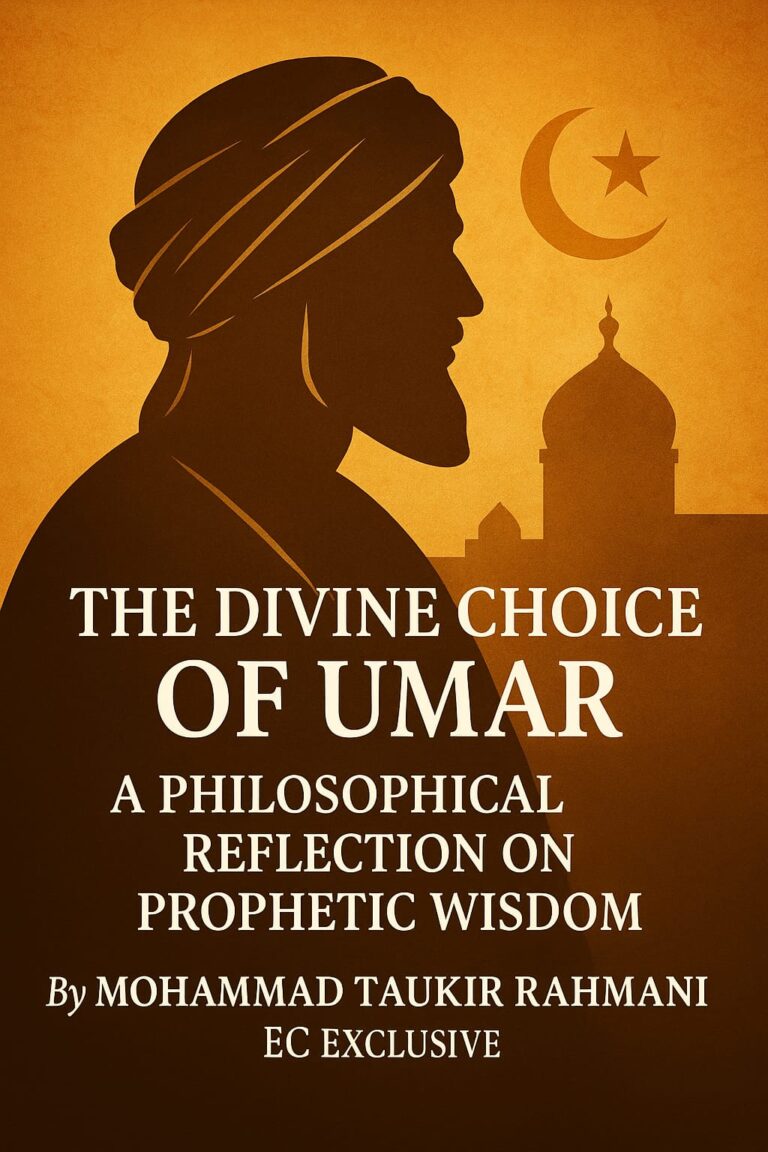 Islam
IslamThe Divine Choice of Umar: A Philosophical Reflection on Prophetic Wisdom
The Divine Choice of Umar: A Philosophical Reflection on Prophetic Wisdom By Mohammad Taukir...
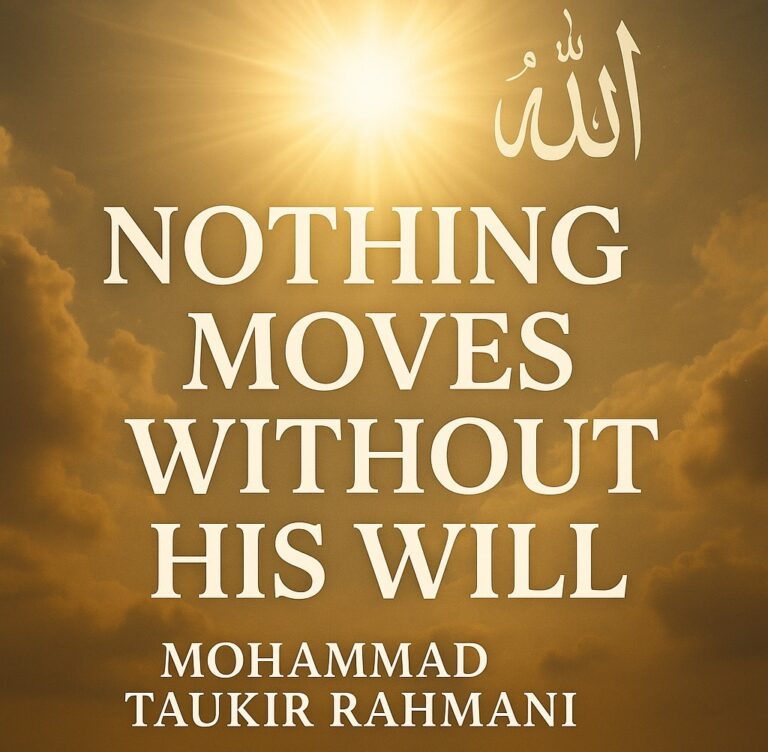 Islam
IslamNothing Moves Without His Will
Nothing Moves Without His Will Mohammad Taukir Rahmani EC Exclusive In the vast landscape...
 Islam
IslamThe Wisdom Behind Islamic Festivals: A Path to Social Harmony
The Wisdom Behind Islamic Festivals: A Path to Social Harmony By: Mohammad Taukir Rahmani...

Comments (3)
Leave a Comment
Absolutely indited written content, Really enjoyed looking through.
Greetings! Very helpful advice on this article! It is the little changes that make the biggest changes. Thanks a lot for sharing!
Hello! I could have sworn I’ve been to this blog before but after browsing through some of the post I realized it’s new to me. Anyways, I’m definitely happy I found it and I’ll be book-marking and checking back frequently!